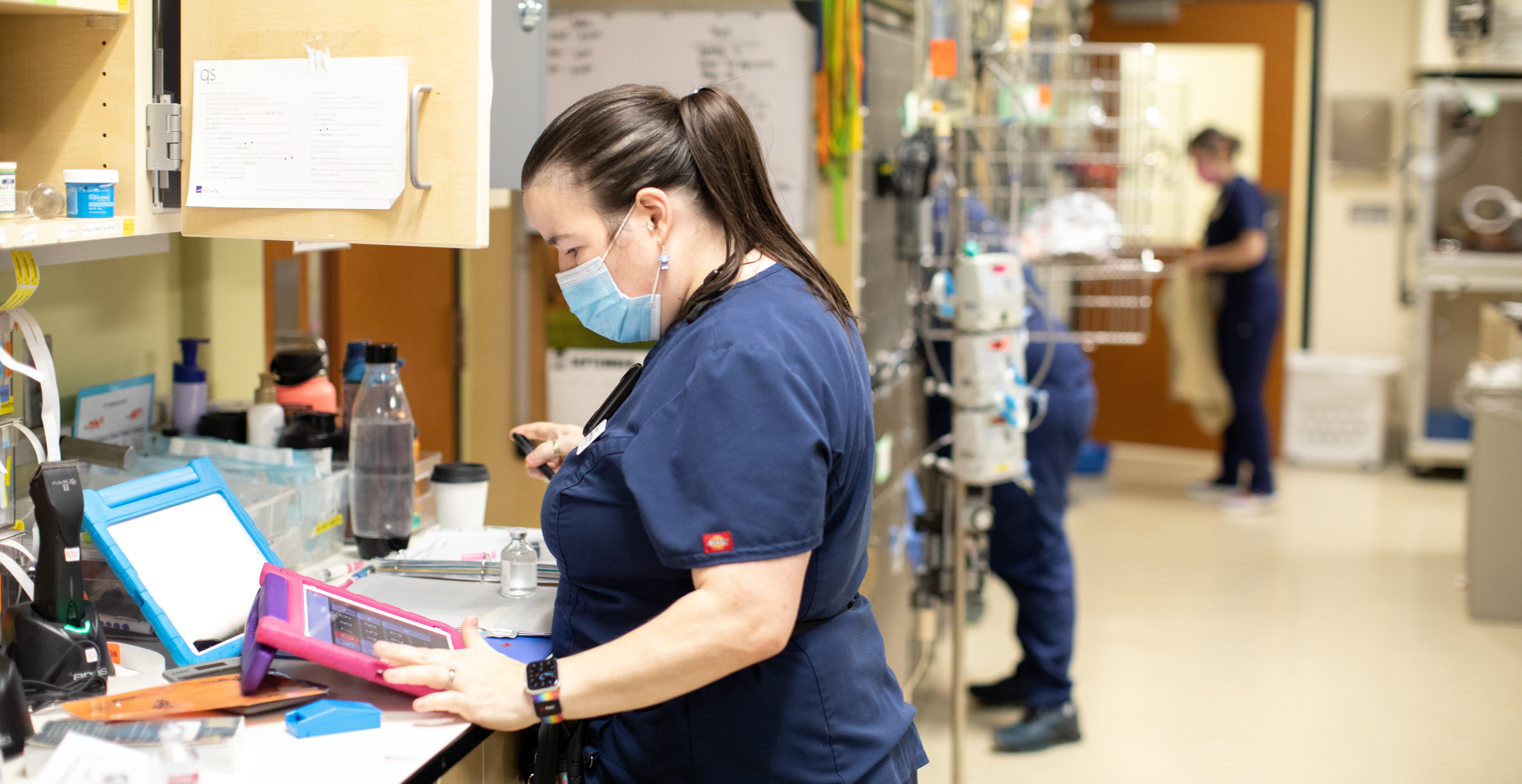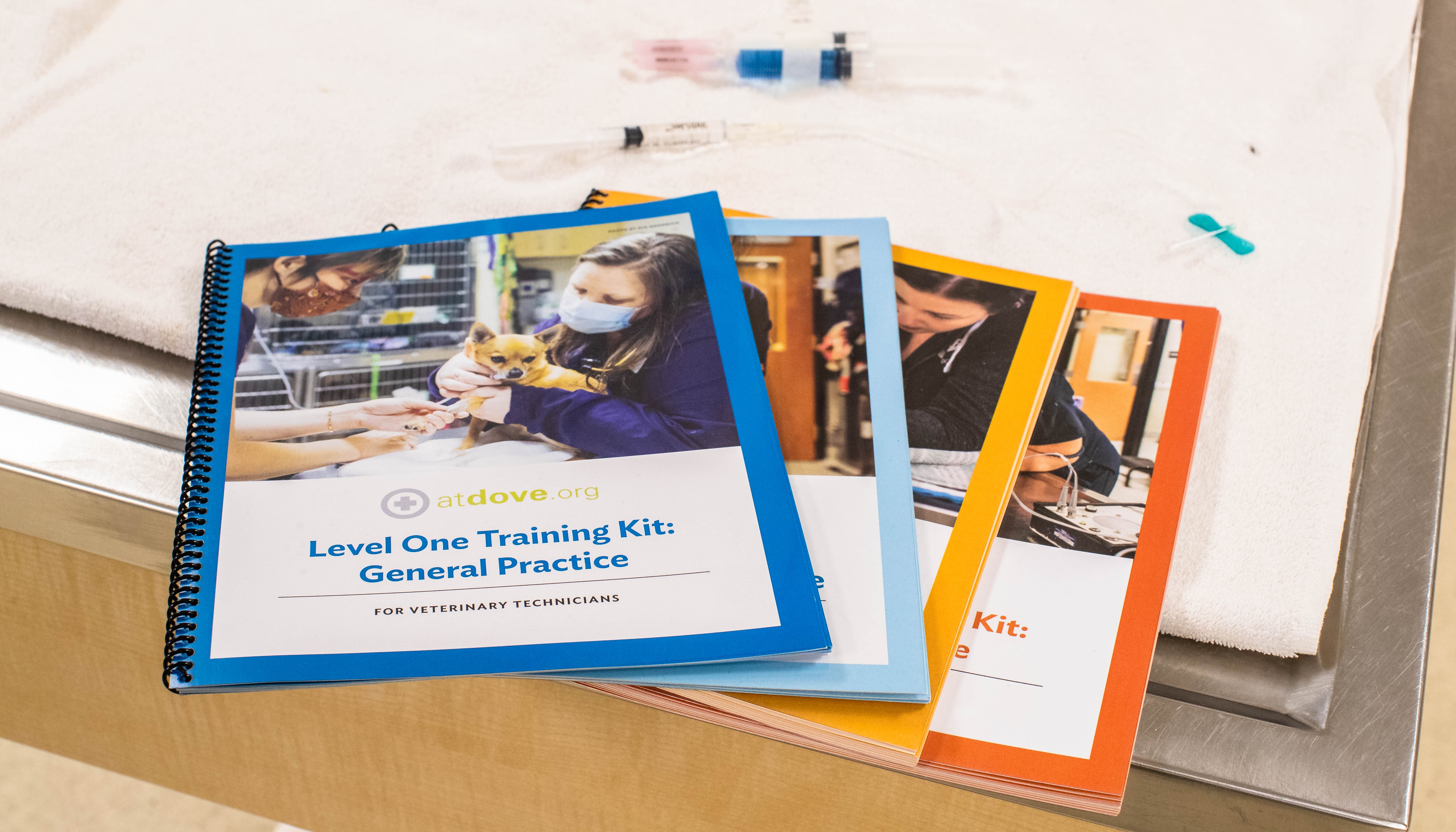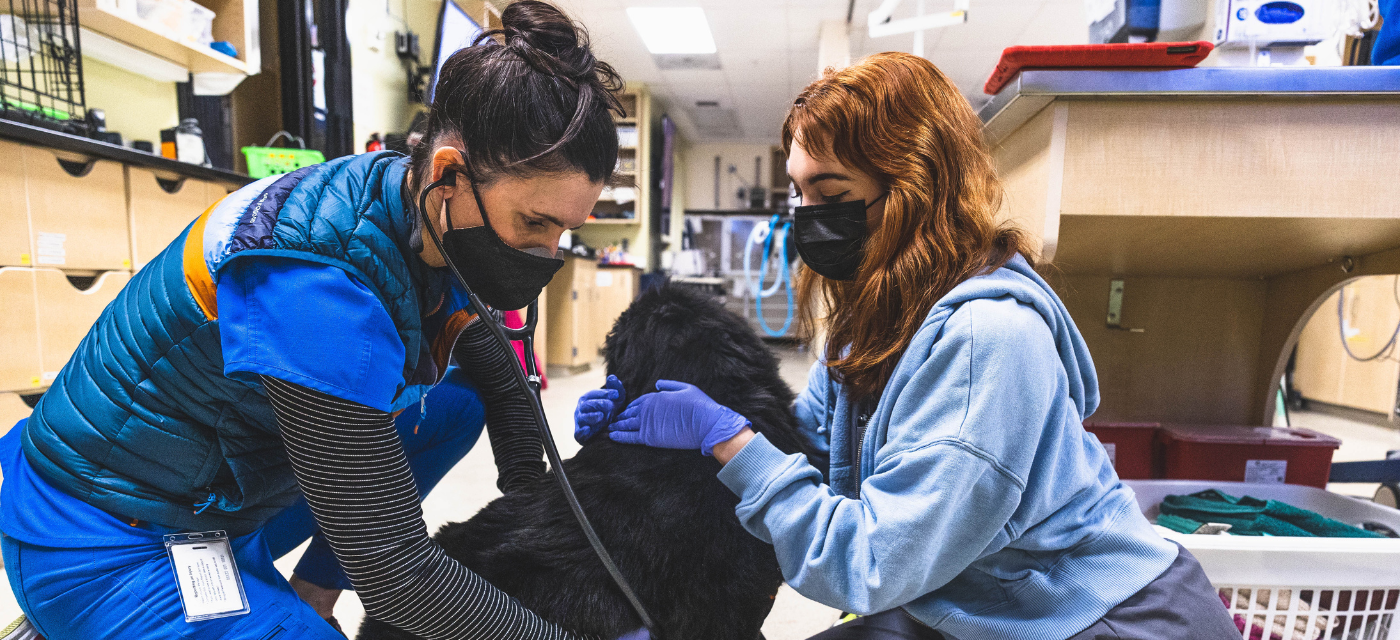Veterinary Technician Multidisciplinary Rounds (TMRs)

Over the last year, DoveLewis rolled out a new offering for technicians called TMRs, or Technician Multidisciplinary Rounds. Interested in setting up Technician Rounds at your own hospital? See how DoveLewis Patient Care and Educational Specialist Sarah Harris, CVT, VTS (ECC), laid the foundation for an engaging learning experience.
As technicians, our role is essential in the care and clinical outcomes of the patients who come to DoveLewis. We have hands on these critical patients more than anyone else in the hospital and we are their best advocates. Regardless of the chaos around us, I believe that sharing in these experiences can lead to improved patient outcomes. TMRs are across all departments, and I encourage and hope for a diverse case representation.
Presenting at a TMR can help improve future patient outcomes, public speaking skills, and teamwork. Although I will lead the first session and will occasionally present in the future, the goal is for all technicians to take shared ownership of TMRs. Ideally, we will get to a point where TMRs occur monthly on different days and times, allowing for equitable opportunities across shifts to attend.
Technician Multidisciplinary Rounds (TMRs) Outline
Objectives:
- Advance professional practice through knowledge and experience sharing
- Facilitate reflection-based learning through evidence-based peer discussion
- Improve patient outcomes by increasing quality nursing care
- Reduce adverse outcomes by addressing patient and staff needs
Guidelines:
- 60-minute session: recommendation is a 40-minute case presentation allowing a 20-minute group discussion (careful planning will allow adherence to time restraints and be respectful of attendee’s time)
- Clinical application and learning expectation with a variety of experience levels in mind
- Simple outline or basic PowerPoint to help attendees follow along
- Virtual platform to allow technicians to attend from home: The presenter may host virtually from home or reserve a conference room (future possibility for in-person attendance as COVID allows)
- Commonsensical approach to shared information being respectful of client and staff privacy
What makes a good case?
A good case isn’t necessarily an obscure one. Although extreme zebra cases can provide great learning opportunities, we have much to learn from our everyday cases. We learn as much by celebrating victories as we do by breaking -down cases with less desirable outcomes. If the case is closer to traditional morbidity and mortality rounds, careful consideration must be taken to ensure staff involved does not harbor any unnecessary responsibility when discussed in a group setting. While everyone who practices medicine is human, this will not be a platform where shame is perpetuated.
Consider sharing a case:
- Where you learned something new
- That demonstrated an application of or a need for intensive nursing care or medical interventions
- That is a great representation of evidence-based practice
- Where hindsight of patient outcome or diagnostic results allows us to see the case in a way we couldn’t upon initial assessment


